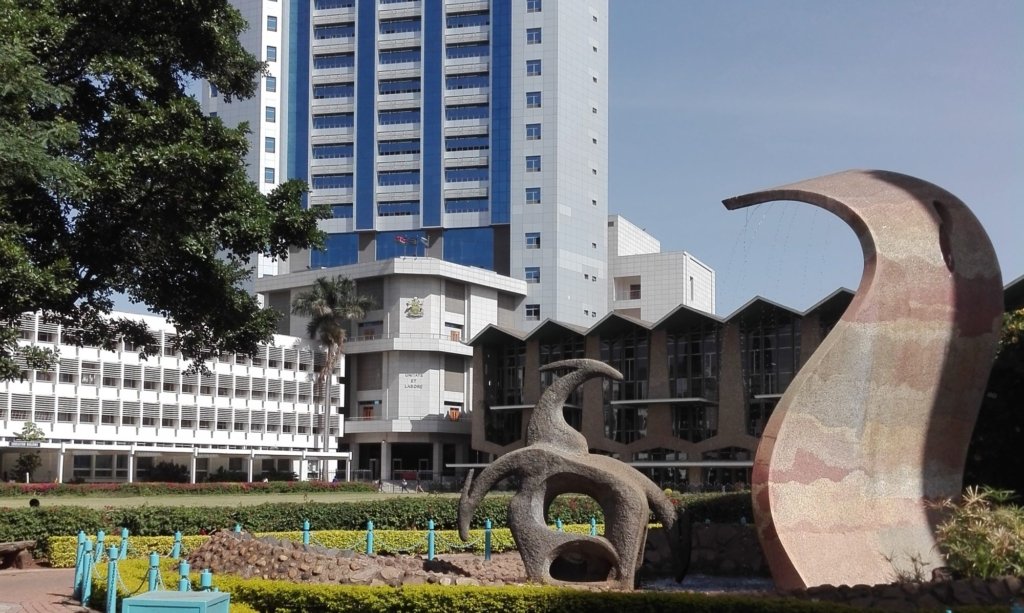With Kenya’s booming real estate market driven by urbanization, infrastructure development, and increased housing demand, there has never been a better time to pursue a real estate degree in Kenya.
Whether you’re aiming for a career as a property developer, valuer, agent, or consultant , earning a professional qualification gives you the knowledge and credibility needed to succeed.
In this guide, we’ll explore:
- What a real estate degree entails
- Top universities offering real estate programs
- Career paths and salaries
- Licensing and professional certifications
- And much more!
📘 What Is a Real Estate Degree?
A Bachelor of Science (BSc) in Real Estate or Property Management is an undergraduate program that equips students with the skills and knowledge required to manage, develop, and invest in real estate assets.
Key Areas Covered:
- Land economics
- Real estate law
- Property valuation
- Urban planning
- Construction management
- Investment analysis
- Housing policy
- Real estate marketing
This degree prepares graduates for careers in residential and commercial real estate , land development , property consultancy , and government housing policy .
🏛️ Top Universities Offering Real Estate Degrees in Kenya
Several accredited institutions offer real estate-related programs. Here are some of the most reputable:
| University | Program Offered | Duration |
|---|---|---|
| University of Nairobi- UoN | BSc in Real Estate | 4 years |
| Jomo Kenyatta University of Agriculture and Technology- JKUAT | BSc in Property Management | 4 years |
| Kenyatta University- KU | BSc in Land Economics & Real Estate Management | 4 years |
| Technical University of Kenya- TUK | BSc in Real Estate and Property Management | 4 years |
| Kenya Methodist University- KeMU | BSc in Real Estate Management | 4 years |
💡 Some institutions also offer diploma courses and part-time/distance learning options .

🧾 Entry Requirements
To be admitted into a BSc in Real Estate program in Kenya, you typically need:
- KCSE Mean Grade of at least C+ (plus)
- At least a C+ in Mathematics
- A minimum of C in English or Kiswahili
- Some universities accept diploma holders from TVET institutions for direct entry into Year 2
📚 Course Structure Overview
While specific curricula may vary by institution, here’s a general breakdown of what to expect:
| Year | Core Subjects |
|---|---|
| Year 1 | Introduction to Real Estate, Principles of Economics, Mathematics for Business |
| Year 2 | Land Law, Real Estate Finance, Valuation Techniques |
| Year 3 | Property Management, Urban Planning, Construction Economics |
| Year 4 | Real Estate Investment Analysis, Project Feasibility Studies, Research Project |
👩💼 Career Opportunities After Graduation
Graduates with a real estate degree can work in various roles across both public and private sectors:
| Job Role | Description |
|---|---|
| Real Estate Agent/Broker | Facilitates buying, selling, and renting of properties |
| Property Valuer | Assesses value of land/buildings for sale or taxation |
| Property Manager | Oversees residential/commercial property operations |
| Real Estate Developer | Plans and executes construction and development projects |
| Consultant | Advises clients on property investments and market trends |
| Government Officer | Works with Ministry of Lands or local authorities |
You can work with:
- Real estate agencies e.g., BuyKenya
- Government departments
- Banks and financial institutions
- NGOs and international organizations

💼 Licensing and Professional Bodies
After completing your degree, it’s important to register with the Institute of Surveyors of Kenya (ISK) to practice professionally.
Other relevant bodies include:
- Royal Institution of Chartered Surveyors- RICS – For international recognition
- Real Estate Association of Kenya- REAK – For networking and advocacy
Many graduates go on to earn additional certifications such as:
- Certified Property Manager- CPM
- Registered Valuer and Property Consultant- RVPC
- RICS Associate or Member status
💰 Average Salaries for Real Estate Graduates in Kenya
| Experience Level | Monthly Salary Range (KES) |
|---|---|
| Entry-Level | 30,000 – 60,000 |
| Mid-Level | 70,000 – 150,000 |
| Senior / Managerial | 150,000 – 300,000+ |
Those who start their own firms or invest in property can earn significantly more.
🔮 Future Outlook for Real Estate Professionals in Kenya
With rapid urbanization, smart city projects like Konza Technopolis , and increased foreign investment, the demand for qualified real estate professionals is expected to rise.
Digital transformation is also opening new opportunities, especially for tech-savvy graduates interested in:
- Online property platforms- BuyKenya
- Virtual property tours
- Digital marketing for real estate
- Blockchain-based land registries

Conclusion
Earning a real estate degree in Kenya opens doors to a dynamic and growing industry. Whether you dream of working with top real estate firms, starting your own business, or investing in land and property, this degree equips you with the skills and knowledge needed to succeed.
If you’re passionate about property, finance, and urban development, consider enrolling in a real estate program today and unlock your potential in Kenya’s booming real estate market.
Frequently Asked Questions (FAQs)
Q1: Can I study real estate without a background in mathematics?
A: Most universities require at least a C grade in Mathematics. However, some accept candidates with a D in Math if they have other strong grades.
Q2: How long does it take to complete a real estate degree?
A: Typically 4 years full-time, though part-time or distance learning options may extend this.
Q3: Do I need to be licensed to work in real estate in Kenya?
A: Yes, registration with the Institute of Surveyors of Kenya (ISK) is required to practice professionally.
Q4: Are real estate jobs well-paying in Kenya?
A: Yes, especially for those with experience, certifications, and entrepreneurial drive.
